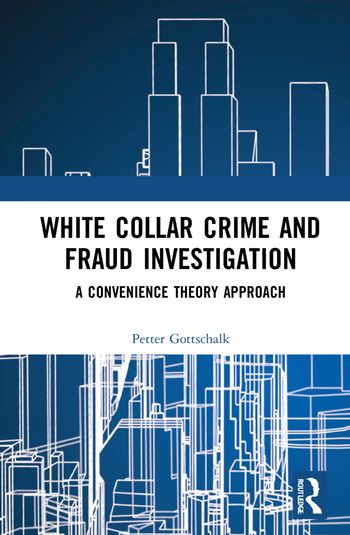
This book applies a structural model of convenience theory to suspected crime and a maturity model to investigation reports. Evidence of white-collar convenience themes in each case study is derived from internal investigation reports by fraud examiners.
The study of white-collar offenders has received increased attention in recent years. This book contributes to our understanding of financial crime by privileged individuals in professional settings by identifying convenience themes for offenders. Based on the theory of convenience, the work presents a number of case studies to identify convenience in financial motive, organizational opportunity, and willingness for deviant behavior. Case studies presented are from Austria, Asia, Congo, Denmark, Germany, Norway, Sweden, and the United States.
The book will be of interest to researchers and academics in Law, Criminology, Business, and Sociology. It will also provide a valuable resource for fraud examiners, defense attorneys, police investigators, and prosecutors.